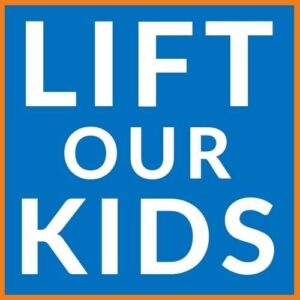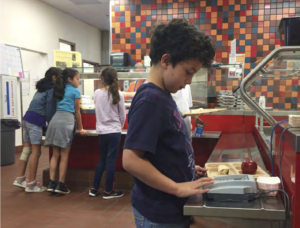CLAVC Initiative Honored with Award from Massachusetts Office for Victim Assistance
FOR IMMEDIATE RELEASE
Contact: Marlena Idrobo, midrobo@mlac.org
Boston, April 15 – The Civil Legal Aid for Victims of Crime Initiative received the 2022 Innovation Award from the Victim and Witness Assistance Board and the Massachusetts Office for Victim Assistance as part of their 2022 Victim Rights Awards.
CLAVC, administered by the Massachusetts Legal Assistance Corporation and the Massachusetts Law Reform Institute, helps victims of crime throughout Massachusetts with their related civil legal problems — including family law, housing, immigration, disability rights, child welfare, education, consumer, identity theft, employment rights and public benefits.
MLRI and NASW-MA Applaud the Baker Administration and Massachusetts Legislature for Breaking Down Barriers to Increase Access to Public Benefits
BOSTON – Following years of advocacy by more than 150 anti-poverty and public health organizations, on February 15, 2022, the Baker Administration announced their plan to allow low-income households the right to apply for Supplemental Nutrition Assistance Program (SNAP) benefits at the same time they sign-up for MassHealth. This implements a legislative directive included in both the FY21 and FY22 state budgets, representing a significant step toward a streamlined application process for means-tested benefits that has widespread bipartisan support in the legislature, impacting roughly 600,000 MassHealth recipients who likely qualify for SNAP.
Statement of Patricia Baker, Senior Policy Advocate, in response to SNAP & MassHealth application change
For too long, Massachusetts households in need have faced bureaucratic obstacles in order to access benefits they need to make their rent payment or put food on the table. For anyone seeking assistance, times are already difficult for them and we should be doing everything we can to ease the burden.
It’s Time to Lift Children Out of Deep Poverty
The Boston Globe had it right in their January 25, 2022 editorial piece Ending welfare as we know it – again: states should tie their cash assistance payments to inflation so that poor, vulnerable families don’t get squeezed by rising costs.
Analysis of the Governor’s FY23 Budget Proposal
The annual budget process begins each year when the Governor files budget recommendations as a bill with the Massachusetts House of Representatives. Under the state Constitution, the Governor must submit a proposal by the 4th Wednesday of January or, in the event of a new term, within the first five weeks. This bill is called “House 1” or “House 2” depending on the year.
On January 26, Massachusetts Governor Charlie Baker released his budget proposal for fiscal year 2023 (FY23), which is referred to as House 2. The Massachusetts Law Reform Institute prepared this analysis of selected budget topics impacting low-income residents of the Commonwealth:
- Cash Assistance, SNAP and Related Items Administered by DTA
- Child Welfare: DCF and Related Items
- Criminal Justice Reform
- Health Issues in MassHealth and ConnectorCare
- Homeless Services
- Housing
- Legal Services/Massachusetts Legal Assistance Corporation
In the next step of the state budget process, the House Committee on Ways and Means examines the Governor’s budget and will release its own budget recommendations for deliberation by the House of Representatives. MLRI will prepare an analysis of the House Ways and Means budget when it is released.
Massachusetts Senate Passes Meal Debt Legislation
 Today, the Massachusetts Senate passed H. 3999, An Act to Promote School Nutrition, which will address the challenge that children and families living in poverty face when it comes to unpaid school meal debt. You can learn more about this legislation on the MLRI blog or in Commonwealth Magazine.
Today, the Massachusetts Senate passed H. 3999, An Act to Promote School Nutrition, which will address the challenge that children and families living in poverty face when it comes to unpaid school meal debt. You can learn more about this legislation on the MLRI blog or in Commonwealth Magazine.
“We are very pleased that the Massachusetts House and Senate unanimously passed this important Legislation. Children should never be caught in the middle of school meal debt, denied hot meals or prevented from participating in extracurricular activities or graduation due to unpaid meal debt,” said Patricia Baker, the Massachusetts Law Reform Institute’s food security expert.
Massachusetts Takes Another Step Toward Lifting Kids Out of Deep Poverty
 In July 2021, Massachusetts made further progress towards Lifting Kids Out of Deep Poverty with a 9.1 percent increase in cash assistance grants for families with children, elders, and people with disabilities. Thanks to the incredible advocacy and leadership of Senator Sal DiDomenico and Representative Marjorie Decker, together with 121 legislative co-sponsors of the Act to Lift Kids Out of Deep Poverty, the FY 2022 budget in July 2021 included this significant step forward.
In July 2021, Massachusetts made further progress towards Lifting Kids Out of Deep Poverty with a 9.1 percent increase in cash assistance grants for families with children, elders, and people with disabilities. Thanks to the incredible advocacy and leadership of Senator Sal DiDomenico and Representative Marjorie Decker, together with 121 legislative co-sponsors of the Act to Lift Kids Out of Deep Poverty, the FY 2022 budget in July 2021 included this significant step forward.
MLRI is proud to lead, along with Greater Boston Legal Services, the Lift Our Kids Coalition, a group comprised of 147 organizations throughout Massachusetts committed to Lifting Kids Out of Deep Poverty in Massachusetts.
People living below half the poverty level – currently $915 a month for a family of three – are considered to be in Deep Poverty. In January 2021, the Legislature took a historic first step with a 10 percent increase in cash assistance grants, raising the maximum benefit for three from $593 a month to $652 a month. This was the first increase in two decades.
MLRI Applauds Passage of Meal Debt Legislation in the Massachusetts House of Representatives
 Last week, the Massachusetts House of Representatives passed An Act Promoting School Nutrition (H.3999), which will address the challenge that children and families living in poverty face when it comes to unpaid school meal debt. That legislation, championed in the House by State Reps. Andres X. Vargas of Haverhill and Sean Garballey of Arlington, will both ensure that more students have access to free school meals and prevent school business practices that effectively punish or embarrass students when their families incur meal debt. The Senate is pending action on a similar bill filed by Senate Majority Leader Cynthia Stone Creem, S. 298.
Last week, the Massachusetts House of Representatives passed An Act Promoting School Nutrition (H.3999), which will address the challenge that children and families living in poverty face when it comes to unpaid school meal debt. That legislation, championed in the House by State Reps. Andres X. Vargas of Haverhill and Sean Garballey of Arlington, will both ensure that more students have access to free school meals and prevent school business practices that effectively punish or embarrass students when their families incur meal debt. The Senate is pending action on a similar bill filed by Senate Majority Leader Cynthia Stone Creem, S. 298.
Patricia Baker, MLRI’s food security expert, noted:
“This legislation represents a major step by the Massachusetts House of Representatives toward boosting federal nutrition dollars for local schools and reducing the burden of school meal debt on families with children. In addition to requiring more schools with high numbers of low-income students to provide universal free meals, this legislation prevents schools from involving or punishing students for meal debt. As we work toward universal school meals for all, we deeply appreciate Speaker Mariano and House leadership in passing Rep Vargas’ bill.”
In 2018, the Massachusetts Law Reform Institute issued a report that looked at unpaid school meal policies in 154 Massachusetts school districts and how they can become punitive towards children in low-income households. We also looked at how some other states across the nation were addressing this practice, a summary of which you can find in this opinion piece at WBUR.
